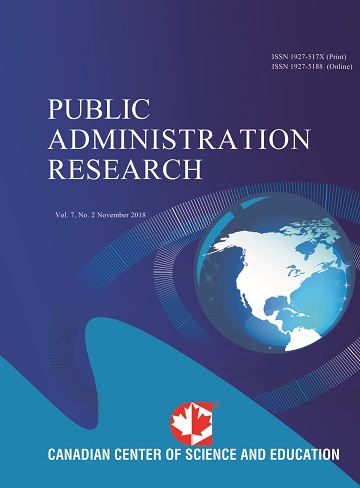Family Planning Program (KB) Implementation Policies on Regional Autonomy Era in Indonesia Case Study in Ngawi Regency of East Java-Indonesia
- Rr Herini Siti Aisyah
- Dewi Amartani
- Tatiek Sri Djatmiati
Abstract
Singer study conducted in Indonesia, the research carried out for 9 months by method qualitative approach and involve a variety of disciplines. Population problem not only problems but also a problem world. a population if not controlled also gatra will impact the state-gatra an lying for example issue of Food, Health and natural carrying capacity. Indonesia's population ranks fourth in the World, with KB Subscription Program during the last Authoritarian Government planning policy on the basis of power and strength, although considered successful. Results of research shows that hearts Its democratic political system (decentralization) are currently required prior to the review of community education pattern participatory with take advantage of all goodness government agencies, organizations and private and non-government. The political changes in Indonesia from authoritarianism Into democratic government formed a system of regional autonomy implementation of policies impacting on the issues population. on when democracy population policy implementation is not again mobilization but participation. With regional autonomy in Indonesia, central government policy is not necessarily carried out by the local government direct becaause become priority not necessarily in daerah.so role of community leaders and NGOs to review very improve society participation hearts Family Planning Program. In addition is the volunteers have the role of highly positioned mainly to review that-majority region is the rural social and economic on underclass.- Full Text:
 PDF
PDF
- DOI:10.5539/par.v5n2p1
Journal Metrics
h-index (2017): 7
i10-index (2017): 6
h5-index (2017): 7
h5-median (2017): 13
Index
- CNKI Scholar
- COPAC
- CrossRef
- DTU Library
- EBSCOhost
- EuroPub Database
- Excellence in Research for Australia (ERA)
- Genamics JournalSeek
- Ghent University Library
- Google Scholar
- Harvard Library
- Infotrieve
- Jisc Library Hub Discover
- LOCKSS
- Mir@bel
- Norwegian Centre for Research Data (NSD)
- Open J-Gate
- PKP Open Archives Harvester
- Publons
- ROAD
- Scilit
- SHERPA/RoMEO
- Stanford Libraries
- Ulrich's
- UniCat
- Universe Digital Library
- UoS Library
- WorldCat
Contact
- Gabriel TaiEditorial Assistant
- par@ccsenet.org
